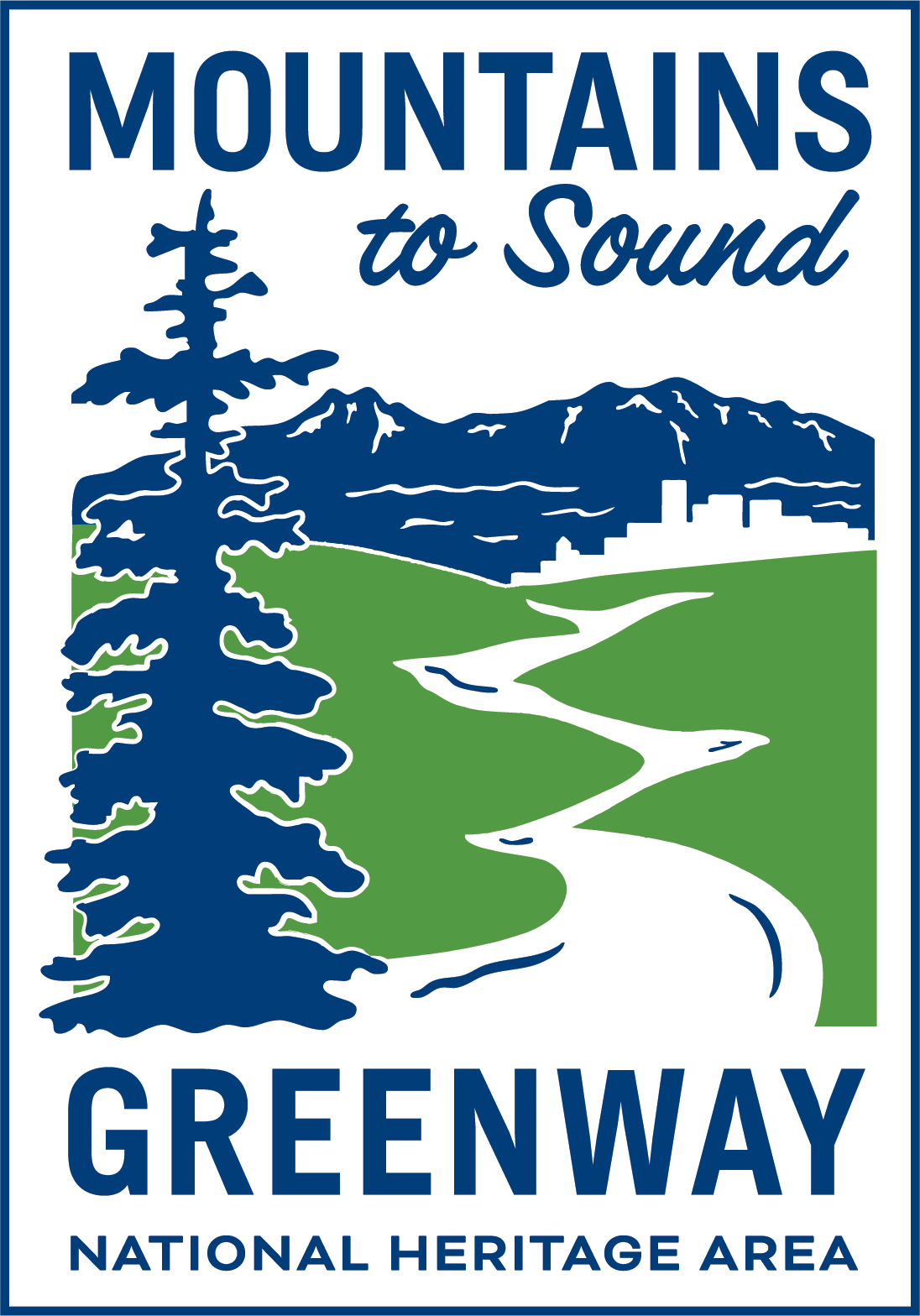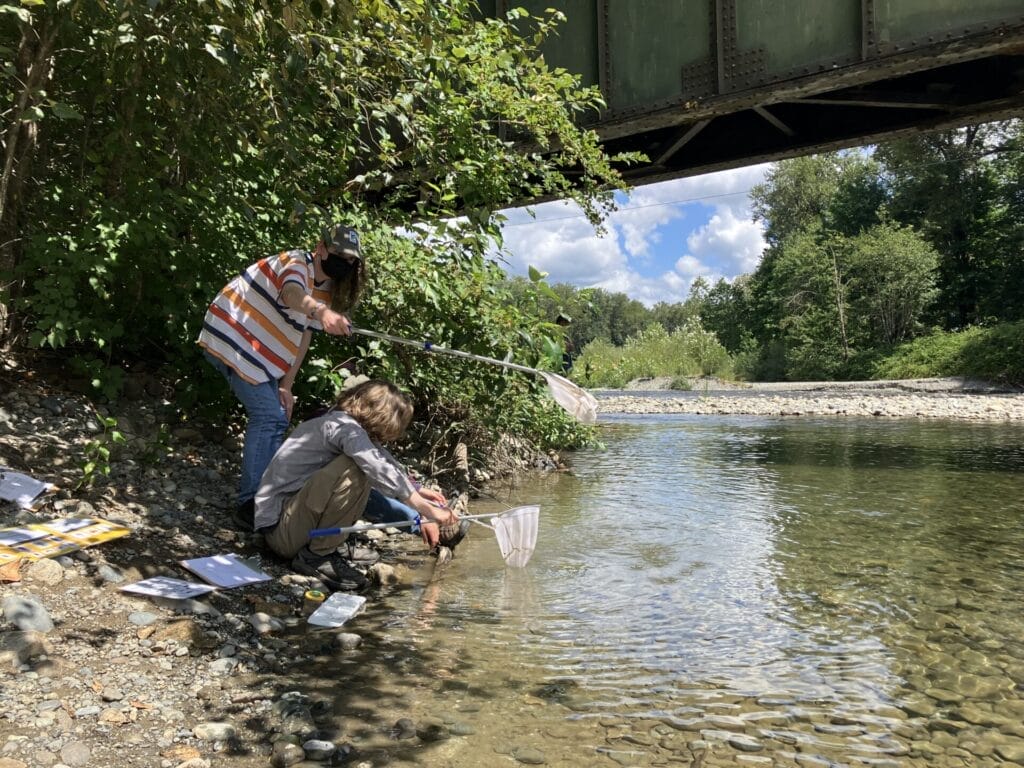This information reflects the 2025 program. Have more questions after reading these FAQs? Email us at education@mtsgreenway.org.
Who is eligible to apply?
Rising 9th – 12th graders who attend a school within the WANIC consortium – Bellevue, Issaquah, Lake Washington, Mercer Island, Northshore, Riverview, and Snoqualmie Valley school districts – are eligible to apply for the YESS Restoration Ecology course program. Priority will be given to first-time participants.
How do I apply for the program, and what is the registration/enrollment process?
Apply on WANIC’s website for the Summer Semester during the Application Window (March 25, 9:00 am – April 24, 3:00 pm). Please see WANIC’s timeline for details regarding the application, lottery, and registration timelines.
Acceptance into YESS will be through a lottery process and a meeting with a YESS program leader to ensure students/families/guardians understand program details and expectations.
WANIC’s registration policy:
“Students will be accepted prioritizing, first all eligible rising 12th graders, then accepting all eligible rising 11th graders, then accepting all eligible rising 10th graders. Rising 9th graders will be accepted in classes that have space available after the other grades have been accepted.
Being accepted into the program does not mean the student is enrolled. To finalize enrollment, the parent/guardian MUST REGISTER THE STUDENT INTO LWSD Skyward. WANIC will email you instructions for completing the registration step. Failing to register the student by the deadline (indicated in the email) will result in the student’s application being removed from the program and placed on a waitlist. Waitlisted applications cannot be guaranteed placement.”
How many people will be accepted?
A cohort of 16 students will be accepted into the program.
When does the YESS Restoration Ecology program take place?
Weekdays, Thursday, June 26 – Friday, August 1, 8:30-3:00. Friday, July 4th will be off.
An orientation night for participants and their families is being planned and will take place shortly before the program starts.
What if I have a family vacation or other activities planned that would require me to miss several days of the program?
If the student has other plans during the program dates that require their absence for more than one day, they should not apply for this class. Read more in the attendance policy section below.
What is the attendance policy?
WANIC’s Attendance Policy:
Students may not be absent for more than one day for any reason. If it’s unavoidable, and the student must miss one day, a parent/guardian must call/email the WANIC office to report the absence. A one-day absence will be excused. If the student misses more than one day, these additional days missed will not be excused; students will not be able to make up missed work, may earn a poor grade, and their stipend will be docked. There are no options to access the class remotely if students are absent for any reason.
By submitting a WANIC Summer Semester application, the parent/guardian agrees that the student will not be scheduled for any other classes, activities, competitions, appointments, holidays, work, vacations, etc. that will conflict with the program. If the student has other plans during WANIC Summer Semester, they should not apply for this class. Students who do not attend the entire first day will be dropped from the program.
On average, how much time is spent outside vs. inside?
This is an outdoor intensive program. Participants can expect to spend Mondays in the classroom with some time spent outdoors for certain lessons/activities, and the remainder of the week completely outdoors in the field at various project sites. Participants should be prepared to spend up to 6 hours outdoors on fieldwork days.
Where does the program take place?
The daily start and end point is at the Riverview Learning Center (RLC) in Carnation.
Classroom lessons will take place at the RLC. Fieldwork days will be at various project sites throughout King County, with a concentration in the Snoqualmie Valley and Issaquah areas. Project sites are still being confirmed with program partners and are subject to change.
Is transportation provided?
Participants will need to arrange their own transportation to get to and from the Riverview Learning Center at the beginning and end of each day. Snoqualmie Valley Transportation is a great resource for those who live within its service area.
Transportation via school bus to and from project sites will be provided.
What does a typical program day look like?
8:30 – Meet at the RLC
8:45 – Drive to project location
9:00-2:30 – Project work, lessons/activities, informational interviews with professionals
2:30 – Drive back to RLC
3:30 – Dismissal
Breaks and lunch will be scheduled throughout the day. Schedules are subject to change depending on site location, drive time, etc. Prompt arrival at the RLC each morning will be important.
What will the project work be?
Project work varies depending on the partner and site. Restoration will be the main activity – pulling weeds like blackberry or ivy using tools. Building and maintaining trails can also be expected as a project activity. Field projects require walking (typically 1-3 miles) across uneven terrain, bending and kneeling while performing repetitive movements during restoration activities, and lifting and transporting materials/tools.
What topics will be covered?
Topics include: safety and well-being, land management practices, cultural resources, human impacts, plant identification, watershed ecology, career pathways, and restoration ecology practices, laws, and agencies.
Will a calendar of daily student whereabouts be shared with parents?
A calendar will be given at the beginning of the program so that students and families know what can be expected and where we will be each day.
How is the stipend distributed?
Stipends are distributed by the Pacific Education Institute as two checks ($900 each) and sent by mail to the address provided in the required paperwork that is collected at the beginning of the program. Participants can expect to receive the first check midway through the program and the second check once the program has concluded.
Who will be leading the program?
Riverview School District teacher, Jeffry Rhodes, and Mountains to Sound Greenway Educator, Mikaela Ebbeson, will be the main co-leads of YESS. Greenway Education Coordinator, Lindsay Spangler, will support the program.
Project partners will include: Greenway Restoration and Recreation teams, Snoqualmie Indian Tribe ENR, Snoqualmie Valley Preservation Alliance, Lake Sammamish Urban Wildlife Refuge Partnership, Washington Department of Natural Resources, King County, and more.
What’s included in the gear kit that students will receive?
Carhartt pants, hiking boots, socks, shirt, hat, work gloves, backpack, pruners, water bottle, bandana, emergency whistle.

What do students need to bring each day?
It’s important that participants wear or bring what they need to stay comfortable, hydrated, and energized, including supplies from the provided gear kit, clothing layers, lunch, snacks, plenty of water, notebook, and sunscreen.
How do I know if this program is right for me?
If you…
- Can attend the entire 5-week program
- Want to earn a credit toward graduation
- Want to make money this summer
- Enjoy being outside and are comfortable in various conditions
- Are curious about the natural world around you
- Want to gain valuable, transferable job skills
…the YESS program is for you!
For any other questions, please reach out to us at education@mtsgreenway.org.











